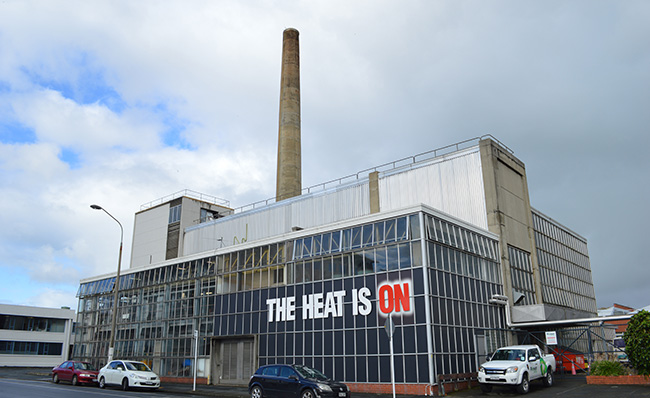 Wednesday 18 October 2017 11:12am
Wednesday 18 October 2017 11:12am
The University of Otago is living its commitment to being a good global citizen by sparking a change that will halve the greenhouse gas emissions created by its energy use, while simultaneously reducing its total carbon footprint by a third.
In a visionary move, the University Council approved the framework that made it possible to approach Pioneer Energy about switching the fuel used to produce steam at its Dunedin Energy Centre from coal to wood – the University uses the steam for heating and hot water, Chief Operating Officer Stephen Willis says. Subsequently, Pioneer is making the switch and the University appreciates its support.
Propelling
Vice-Chancellor Professor Harlene Hayne says the change will propel the Dunedin campus more than halfway along its journey to being a zero carbon campus and is the strongest single action the University can take to show its commitment to genuine sustainability leadership.
The steam and hot water is used in 29 buildings, which make up about 40 per cent of the campus's gross floor area, she says.
Strategy and action
Mr Willis says strong strategy underpinned by real action will ensure the University reaches the cornerstone sustainability target of reducing its total greenhouse gas emissions by a third by 2020, against the 2012 baseline.
The manager of the University's Office of Sustainability, Dr Hilary Phipps, says the change is incredibly exciting because she have always felt this is the most significant short-term action that the University can take to show climate leadership, achieve a rapid reduction in our carbon footprint, and show the University is doing much more than just talking about sustainability.
The transition to wood started in July and should be completed by 1 July 2020.
The journey
Making the transition will take up to three years, because of physical changes needed at the Dunedin Energy Centre.
The agreement with Pioneer Energy is one of the first steps on the University's journey to using 100 per cent renewable energy sources by 2030, Dr Phipps says. That transition will be based on the University's research, analysis and experience over time.
“We will continue to learn lessons, innovate and refine our practices to make the University of Otago more sustainable and set an example for other organisations locally, regionally and internationally,” she says.
The University also has a collaboration agreement with the Energy Efficiency and Conservation Authority and is a signatory to Dunedin Energy Leaders' Accord.
Professor Hayne says: “We see remarkable synergies between the University's vision for sustainability and the Dunedin Energy Leaders' Accord and are looking forward to working constructively with the city council and other signatories to advance the goals in Dunedin's Energy Plan.”
The University also officially launched its Sustainability Strategic Framework: 2017–2021 in May.
The strategy is underpinned by 10 priority actions for this year, the first of which was setting clear operational sustainability targets. These targets focus on reducing greenhouse gas emissions, improving energy efficiency, increasing renewable energy use and minimising waste.
For more information, contact:
University of Otago Communications Projects and Operations Adviser
Gail Goodger
Email: gail.goodger@otago.ac.nz
A list of Otago experts available for media comment is available elsewhere on this website.
Electronic addresses (including email accounts, instant messaging services, or telephone accounts) published on this page are for the sole purpose of contact with the individuals concerned, in their capacity as officers, employees or students of the University of Otago, or their respective organisation. Publication of any such electronic address is not to be taken as consent to receive unsolicited commercial electronic messages by the address holder.
